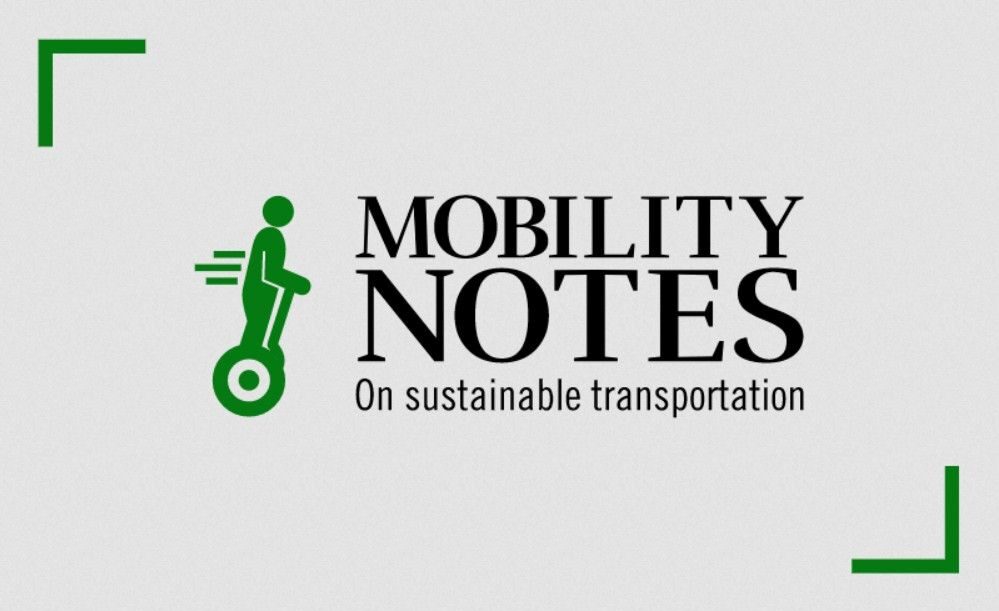Can hybrids lead the pathway for decarbonization of the US light-duty vehicle fleet?
Context
With the Trump administration’s executive orders slamming the brakes on electric vehicle mandates and incentives, and reviewing the greenhouse gas standards, the EV market is expected to face headwinds in the U.S. and this raises questions on the status of improvements in fleet-wide fuel consumption.
Hybrids, which are not subject to mandates, might offer a pathway for continued fuel economy improvements while electrification again finds its footing. This post summarizes the key findings on the CO2 reduction potential for “strong” hybrids (or a full hybrid – as contrasted with a mild hybrid which has limited battery capacity and all electric drive).
Hybrids have gained popularity in recent years, with more models available at a reasonable cost adder compared to conventional ICE-only vehicles. A recent article by the International Council on Clean Transportation (ICCT) analyzes the CO2 emission reductions and the cost of hybrid powertrains for light-duty passenger cars and pickups in the U.S.
It concludes that “strong hybrids provide a 30% reduction in tailpipe greenhouse gas (GHG) emissions at an average price premium of $2,000, with average 10-year fuel cost savings of $4,500. Future strong hybrids can provide an additional 15% reduction in GHG emissions at an average additional price premium of between $300 and $800.”
Key Findings
Reduction in CO2 emissions with hybridization
Comparing two-cycle CO2 certification data for ICE and strong hybrids, the report concludes that hybrids, on average are emitting ~ 43% lower CO2 for cars, and ~ 41% (smaller footprint) to 29% (larger footprint) lower CO2 for trucks.
Cost Comparison of hybrids with ICE-only vehicles
- On average, price difference between hybrid and ICE version for MY 2024 vehicles was ~ $2,000
- HEV prices have continuously decreased (2023 hybrid Camry costs $8,000 lower today vs. 2010)
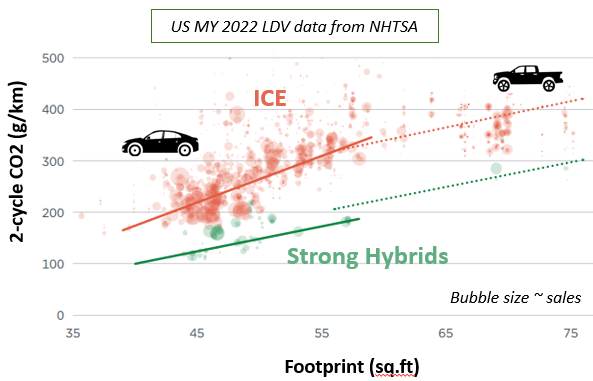
To read about the technology improvements to come, the cost and policy implications, read more ..
Sign up here to receive such summaries and a monthly newsletter highlighting the latest developments in transport decarbonization
5-Min Monthly
Sign-up to receive newsletter via email
Thank you!
You have successfully joined our subscriber list.
Recent Posts
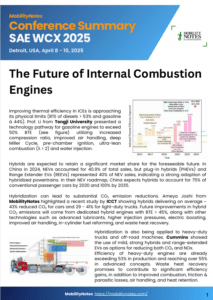
Conference Summary – SAE WCX 2025
![]()
A summary of the “SAE WCX 2025” conference held in Detroit.
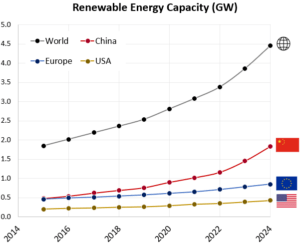
IRENA Renewable Energy Capacity Statistics 2025
![]()
According to the latest report from IRENA, 2024 saw the largest increase in renewable capacity, accounting for 92.5% of overall power additions.
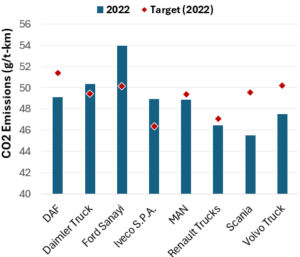
CO2 Emissions Performance of Heavy-Duty Vehicles in Europe – 2022 Results
![]()
The European Commission has published the official 2022 CO2 emission results for heavy-duty vehicles. Many OEMs are ahead of the targets and have gained credits, while others have their work cut out as we approach the 2025 target.

